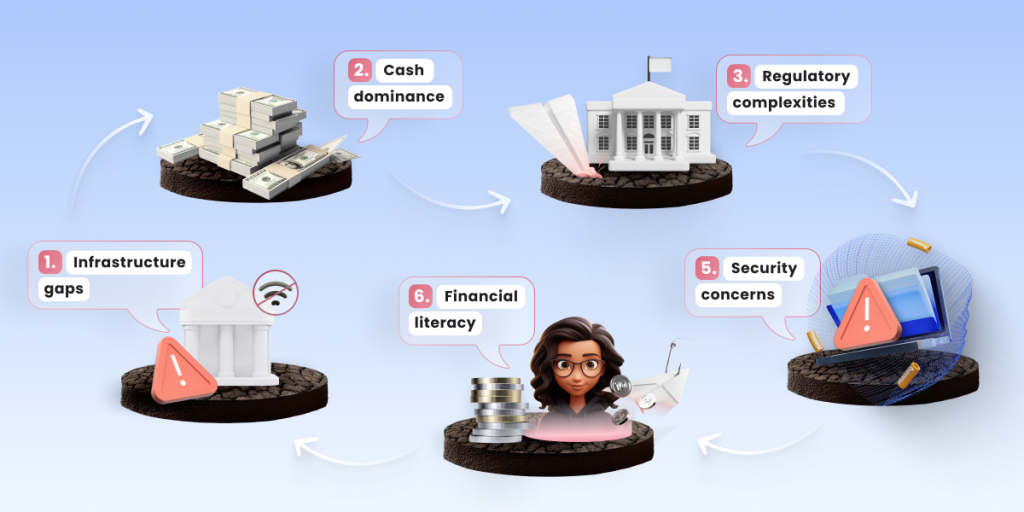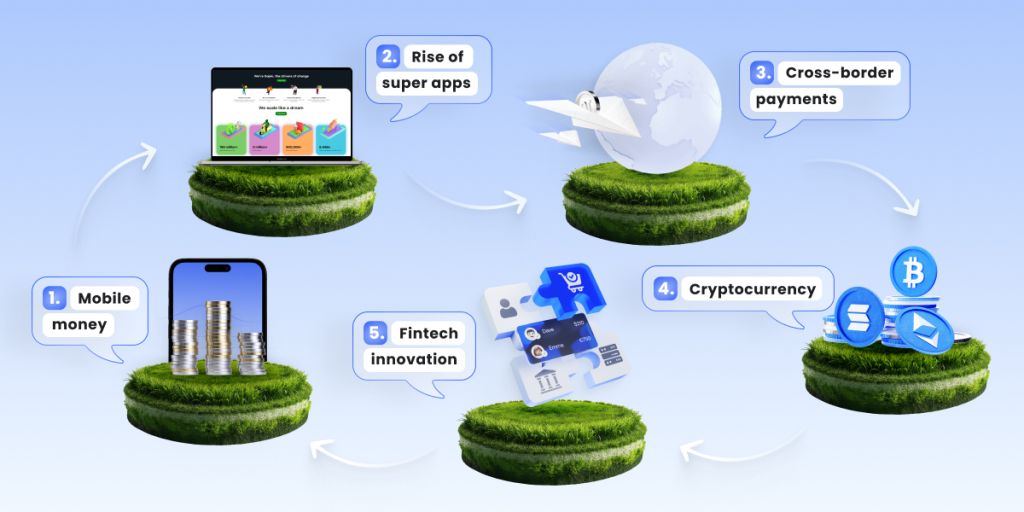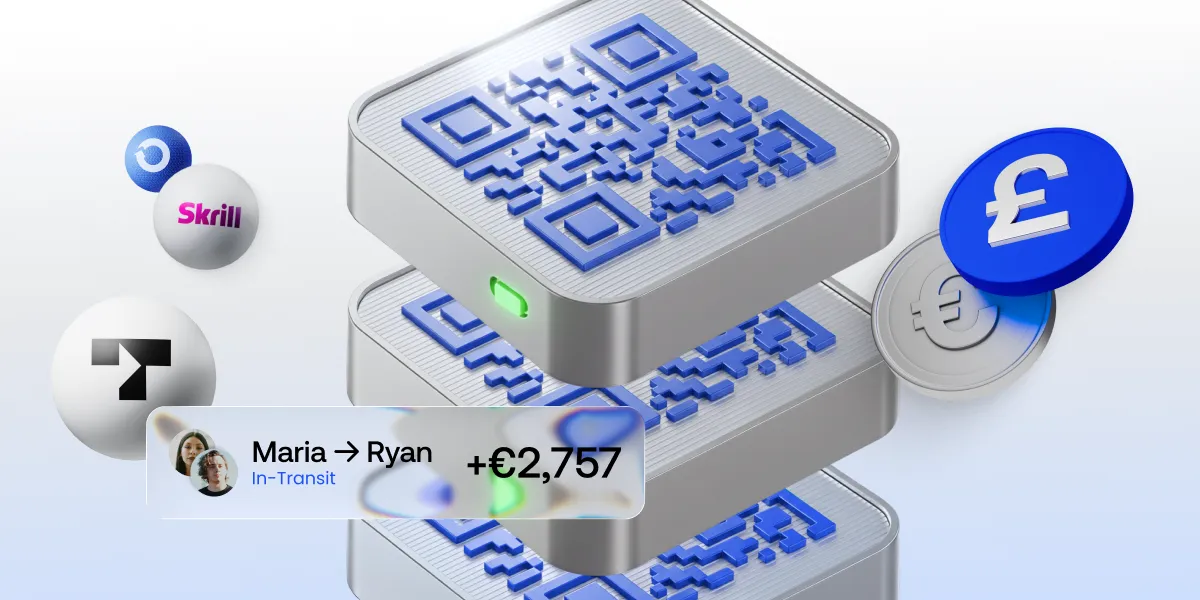Payment trends in emerging markets

Frictionless payment experience has long become a huge part of the buying journey and businesses’ relationship with the client. The difficulty here is that this experience can mean something totally different in established and emerging markets.
While the understanding of established markets’ needs is more or less solid, the situation with, say, Mexico or Chile is not so clear. In this article, we will try to change that and explore the payment trends of emerging markets.
4 aspects shaping the payment landscape in emerging markets

Despite the patchy and unstable nature of the markets in question, they have some clear shared characteristics:
- Smartphone penetration: With the rise of smartphone adoption and a significant part of the population still lacking access to traditional banking services, mobile phones have become the only touchpoint to online commerce. This has fueled the development of digital wallets and mobile banking.
- Government initiatives: Governments in emerging regions are focused on providing safe, cost-effective and accessible payment options. The perfect example is India’s Unified Payments Interface (UPI). It became a game-changer for the country, enabling seamless, real-time bank transfers between individuals and merchants.
- Rise of digital payments: 90% of the world population under 30 lives in the emerging markets. And they favour online commerce and transactions. This leads to the growth of suitable payment methods. Since many of these countries don’t have an established payment infrastructure, they can start from scratch, bypassing traditional banking. Which Kenya did, launching M-Pesa – a phone-based transfer service.
- E-commerce boom: Smartphones and the Internet made e-commerce available to a broader audience. This popularity is not only boosting the development of new payment options but is also helping economic growth.
Challenges in payment processing

The rise in e-commerce and digital payments presents many opportunities for emerging countries. However, before they can be fully realised, there are several problems to solve:
- Infrastructure gaps: Many emerging markets suffer from poor financial infrastructure. Limited access to banking services, lacking internet connectivity, and underdeveloped payment networks hinder the adoption of digital payments.
- Cash dominance: Despite the growth of digital payments, cash remains the king in many emerging markets. This preference for cash can be explained by cultural factors, a lack of trust in digital systems, and the limited reach of banking services.
- Regulatory complexities: Regulations often are fragmented, with different authorities overseeing separate aspects of payment processing. This lack of system also leads to abrupt and not very clearly described changes in rules.
- Security concerns: Cybersecurity is a significant concern in emerging countries. Awareness and protection tools here are not as robust as in established markets, and data protection laws are still in development. Together, this could increase fraud and undermine trust in digital payments.
- Financial literacy: Despite a large percentage of the young population, many have little knowledge or trust in emerging digital payment solutions. Educating consumers and merchants about their benefits and security is essential for driving wider acceptance.
Key payment trends in emerging markets

- Mobile money: Mobile money services like M-Pesa in Kenya and GCash in the Philippines have gained huge popularity. These services allow users to transfer money, pay bills, and make purchases using their mobile phones without needing a traditional bank account.
- Rise of super apps: Super apps provide a wide range of services beyond payments. One example is Gojek in Indonesia. In addition to money transfers and payments, it offers ride-hailing, food delivery, and other services.
- Cross-border payments: Emerging markets show increased demand for cross-border payment solutions. Businesses and consumers require efficient and affordable ways to send and receive money across borders. This will drive both national economies and technological innovations.
- Cryptocurrency: Despite its newness, cryptocurrency is gradually gaining widespread adoption in emerging markets. The reason behind this is economic instability and lack of traditional banking in many regions. Cryptocurrencies also have the potential to solve the issue of cross-border payments, reducing transaction costs and increasing transparency.
- Fintech innovation: The fintech sector in emerging markets is booming, with startups developing solutions from digital wallets to buy-now-pay-later (BNPL) services. The overall goal is to create a robust and inclusive payment infrastructure that meets the needs of consumers with varying levels of access to banking services.
5 tips for businesses expanding to emerging markets

Entering emerging markets can offer significant growth opportunities. However, careful planning and adaptation should be involved. Here are a few tips to help you get started:
- Understand the local market: Conduct thorough research on the local economic environment, consumer behaviour, payment preferences and cultural nuances. Be prepared to integrate different local methods for each region and country.
- Prioritise mobile compatibility: In many markets, smartphones are the only internet source. So, you must ensure your platform and payment system are mobile-friendly, with easy-to-use interfaces.
- Be flexible and adaptable: Emerging markets can be unpredictable, with rapid changes in consumer behaviour, regulatory frameworks and economic conditions. So, you should have technical and human resources to adapt as needed. This may include adjusting pricing models, payment options or marketing strategies based on real-time feedback and market trends.
- Focus on security and trust: Building consumer trust is vital, especially in regions where cash is still more popular than digital payments. Invest in robust security measures to protect consumer data and prevent fraud. Clearly communicate these steps to your customers, potentially hiring a local support service to make the process more effective.
- Find a reliable payment partner: Learning the ins and outs of emerging markets can be a lot. The best way around this is to partner with a payment provider.
Benefits you get working with Payop
Working with Payop you don’t need to spend time and money exploring payment options. Our platform gives you access to over 300 local payment methods and 100 currencies. Plus, our team knows the preferences of every region and industry and will help you make a fitting selection for your customers.
Payop’s multi-currency support allows you to do business in the local currencies of your target markets, reducing currency conversion costs and potential losses due to exchange rate swings.
Beyond payment processing, you get robust security measures, local compliance and advanced fraud detection systems to help you build customer trust and secure transactions. Ready to discuss details? Contact our team at sales@payop.com to get an individual consultation.









